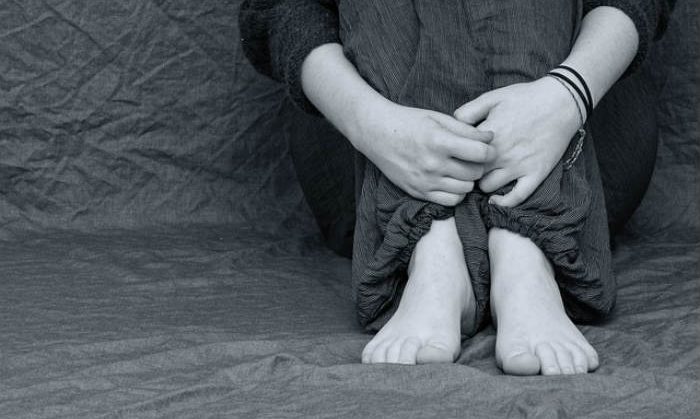Every once in a while, everyone needs a lazy day. After a long work week sometimes, all you want to do is order takeout, binge-watch your favorite Netflix series, take a workout break, put off a chore or two, and finally sleep in. Doing all that is okay, but what happens when a lazy weekend turns into a lazy week, or two, or three?
Oftentimes, it is far too easy to confuse laziness for depression and vice versa. And it’s easy to see how that can happen when you see symptoms of depression such as disinterest in daily activities, appetite or weight changes, trouble sleeping, loss of energy, and concentration problems. (1) Chances are if you saw someone who always seemed tired, unproductive, sluggish, and uninterested, you may think to yourself that that person is lazy. But, as you will see below, sometimes the reason is deeper and darker than that…
In this article:
- The Difference between Laziness and Depression
- How to Know If You’re Depressed
- A Self-Led Questionnaire About Depression
Are Laziness and Depression Really That Different?
A key to identifying if someone is lazy comes down to a choice. Do you feel physically and mentally unable to complete a simple task or are they choosing, for example, to put off washing the pile of dishes in their kitchen on purpose?
People with depression, on the other hand, do not necessarily want to feel (or choose to be) lazy. It’s completely out of their control. In fact, you can bet that the last thing depressed individuals want to think of is how dirty their kitchen is. With that comes guilt and elevated levels of stress and anxiety. (2)
Everyone experiences bouts of laziness that last anywhere from one to a few days. However, according to the American Psychiatric Association, depression symptoms must last at least two weeks for someone to receive a diagnosis of depression. (3)
Laura D. Miller, a licensed clinical social worker, believes that when we criticize someone of being lazy, we are making a character judgement which “does nothing to help us understand why someone doesn’t exert the effort to do what they want to do or are expected to do.” (4)
While someone may think you are being lazy, your behavior could actually be caused by a fear of failure or success or expectations, a desire to feel nurtured, a genuine need for relaxation, or… depression. It may seem trivial to some, but if you see someone who you think is lazy, their actions or lack thereof might be signalling something far deeper.
Related: You’re Missing These Warning Signs That Someone You Love Has Depression
When My Depression Seems Like Laziness to Others

In a 2016 article for The Mighty, Caitlin Ainsworth captured the essence of what it’s like when other people mistake her depression for laziness.
“I finally find the courage to get out of bed five hours after my alarm goes off to go to the bathroom and maybe find some food, but after that I’m back into my nest of blankets and pillows that once in a while seems to guard me from the monsters in my head — the monsters that surround me,” writes Caitlin Ainsworth in a personal essay for The Mighty. (5)
Some people might assume I have an easy life, that I am lazy for ignoring the immense workload I have from class, and this just makes me feel lazy. It makes me feel like I’m not trying hard enough and that I’m a disappointment to everyone around me. I’m sorry I’m a mess. I just wish others would understand that I’m trying, and that I’m getting better. I’m not ‘lazy.’”
Depression may not always be visible and, even when it is, others can easily dismiss it as something less problematic (e.g., laziness). So, whether you or someone you know is potentially dealing with depression, it’s important to know how to tell the difference.
How to Know If I Am Depressed

First and foremost, this information is not intended to replace professional medical advice, diagnosis or treatment. But, as a starting point, you can answer the questions below to help both you and your physician understand and find out if you could have depression. It has been adapted from the Patient Health Questionnaire for helping detect depression that was published in the Journal of General Internal Medicine. (6)
1) Do you feel disinterested and gain little pleasure in doing things?
- Not at all (0 points)
- Several days (1 point)
- More than half the days (2 points)
- Nearly every day (3 points)
2) Do you feel down, depressed, or hopeless?
- Not at all (0 points)
- Several days (1 point)
- More than half the days (2 points)
- Nearly every day (3 points)
3) Do you sleep too much or have trouble falling/staying asleep?
- Not at all (0 points)
- Several days (1 point)
- More than half the days (2 points)
- Nearly every day (3 points)
4) Do you feel fatigued or have little energy?
- Not at all (0 points)
- Several days (1 point)
- More than half the days (2 points)
- Nearly every day (3 points)
5) Do you overeat or have a poor appetite?
- Not at all (0 points)
- Several days (1 point)
- More than half the days (2 points)
- Nearly every day (3 points)
6) Do you feel like a failure or that you are letting yourself and/or your family down?
- Not at all (0 points)
- Several days (1 point)
- More than half the days (2 points)
- Nearly every day (3 points)
7) Do you have trouble concentrating on things?
- Not at all (0 points)
- Several days (1 point)
- More than half the days (2 points)
- Nearly every day (3 points)
8) Do you move or speak so slowly that other people have noticed?
- Not at all (0 points)
- Several days (1 point)
- More than half the days (2 points)
- Nearly every day (3 points)
9) Do you have thoughts of hurting yourself?
- Not at all (0 points)
- Several days (1 point)
- More than half the days (2 points)
- Nearly every day (3 points)
How to Interpret the Score
0 to 4: Minimal depression
5 to 9: Mild depression
10 to 14: Moderate depression
15 to 19: Moderately severe depression
20 to 27: Severe or major depression
Although the differences between laziness and depression may seem subtle, we hope that this article has clarified all the major ways that they are not. If you or a loved one is showing signs of depression, please do see a mental health professional to discuss the best and healthiest options for moving forward and getting better.

